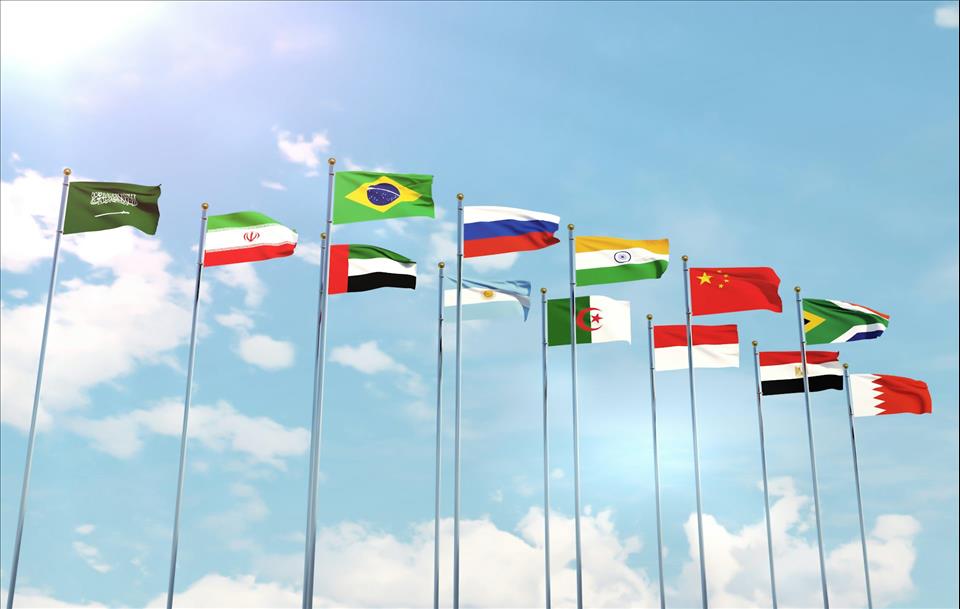
Indonesia's BRICS Agenda: 2 Reasons Prabowo's Foreign Policy Contrasts With Jokowi's
During Joko“Jokowi” Widodo's two-term administration, then-former Foreign Minister Retno Marsudi led efforts to integrate Indonesia's economy with Western institutions by working to secure membership with the OECD.
Since BRICS is an alternative to Western-dominated organisations , many observers scrutinised and questioned Indonesia's nonalignment commitment. However, Foreign Minister Sugiono argued that BRICS aligns with Indonesia's 'free and active' foreign policy, allowing Indonesia to collaborate widely without aligning too closely with any single bloc.
For Sugiono, joining BRICS means paving the way to advance the new government's goals of food security, energy independence, poverty alleviation, and human capital development. The bloc offers access to funding, technology, and trade opportunities to tackle key challenges in those sectors. BRICS, with its emphasis on fairness and cooperation, supports Indonesia's vision for a more inclusive and sustainable future.
The shift from Retno's OECD focus to Sugiono's BRICS approach reflects at least two visions. First, Indonesia seeks to reassess its strategic position as the leading economy in Southeast Asia. Second, the country seeks to switch from its nonalignment stance to multi-alignment . The later will help navigate partnerships with both developed and emerging economies , balancing traditional alliances with new opportunities.
Joining BRICS can amplify Indonesia's influence in its already strong ties with each of the member countries and unlock opportunities beyond one-on-one partnerships.
Fear of missing outIndonesia's pivot to BRICS reflects both its relationship with major powers, such as China and the US, and regional pressures.
Neighbouring countries Malaysia and Thailand have recently expressed interest in BRICS, creating a sense of competition within Southeast Asia. Both countries joining the bloc could erode Indonesia's leadership and influence in the region, especially in affecting global affairs.
Through ASEAN, Indonesia has sought to act as a regional stabiliser and mediator amid rising polarisation between the West and China .
As its de facto leader, Indonesia has historically championed initiatives like the South China Sea Code of Conduct and Myanmar's peace process. Its G20 presidency further underscored its role as a mediator between global powers.
This 'fear of missing out' has spurred Indonesia's interest in BRICS.
Joining BRICS ahead of its regional peers ensures that Indonesia maintains its leadership position in ASEAN. For Prabowo's administration, BRICS offers a platform to advance Indonesia's interests in maritime security, economic growth, and global governance. It is a strategic move beyond an economic decision to amplify its voice on global issues and prevent fellow Southeast Asian countries from overtaking it in shaping the bloc's agenda.
Bold (but not one) directionIndonesia's BRICS membership announcement highlights the new administration's foreign policy ambitions, centred on two key shifts: adopting a multi-alignment strategy and strengthening its 'good neighbour' policy.
Prabowo envisions engaging with all nations, fostering friendly relations while opposing oppression. This approach resonates with Indonesia's historical commitment to sovereignty and equality in international relations.
Indonesia has traditionally adhered to a nonalignment principle . This virtue has aided the country navigating major power blocs without binding itself to any single alliance. However, the current geopolitical climate – marked by intensifying tensions between global powers, regional conflicts, and intricate challenges – demands a more flexible and strategic approach.
By joining BRICS, Indonesia avoids taking sides and instead diversifies its partnerships to maximise benefits. This multi-aligned approach enables active participation in BRICS discussions on multilateral reform.
Prabowo's 'good neighbour policy ' further underscores the importance of maintaining positive relations with all countries. It empowers developing nations and advocates for a more equitable global order and economic system. This strategy also facilitates Indonesia's resilience by fostering partnerships in food and energy security, poverty alleviation, and human capital development .
Such collaborations reduce reliance on Western financial systems and enhance Indonesia's autonomy. Ultimately, these strategic directions position Indonesia as a sovereign and dynamic player capable of balancing global relationships while advancing its own priorities .
What about the OECD?This move does not mean the OECD is off the table for Indonesia. Instead, Prabowo's approach reflects a dual-track strategy that values both alliances for their respective benefits.
The OECD remains a long-term objective to enhance Indonesia's economic governance and regulatory standards. It serves the goal of providing the country with stable relationships within the Western economic framework. Meanwhile, BRICS offers an immediate avenue for Indonesia to deepen ties with equivalent economies and actively shape policies that impact the Global South.
Sugiono's statement in Kazan emphasised Indonesia's commitment to engaging in other forums, including the G20 and OECD discussions. It highlighted the country's flexibility in international alliances.
This dual-track strategy reinforces Indonesia's role as a bridge between developed and developing nations, maximising the benefits of both alliances without sacrificing its autonomy.
What's next for Indonesia?Indonesia's decision to join BRICS marks a significant evolution in its foreign policy. By participating in BRICS, Indonesia positions itself as a critical player in global discussions on economic reform and development, asserting its voice within a multi-polar world order.
Indonesia is charting a path that balances traditional alliances with emerging opportunities, reinforcing its role as a dynamic, independent player on the world stage.

Legal Disclaimer:
MENAFN provides the
information “as is” without warranty of any kind. We do not accept
any responsibility or liability for the accuracy, content, images,
videos, licenses, completeness, legality, or reliability of the information
contained in this article. If you have any complaints or copyright
issues related to this article, kindly contact the provider above.


















Comments
No comment